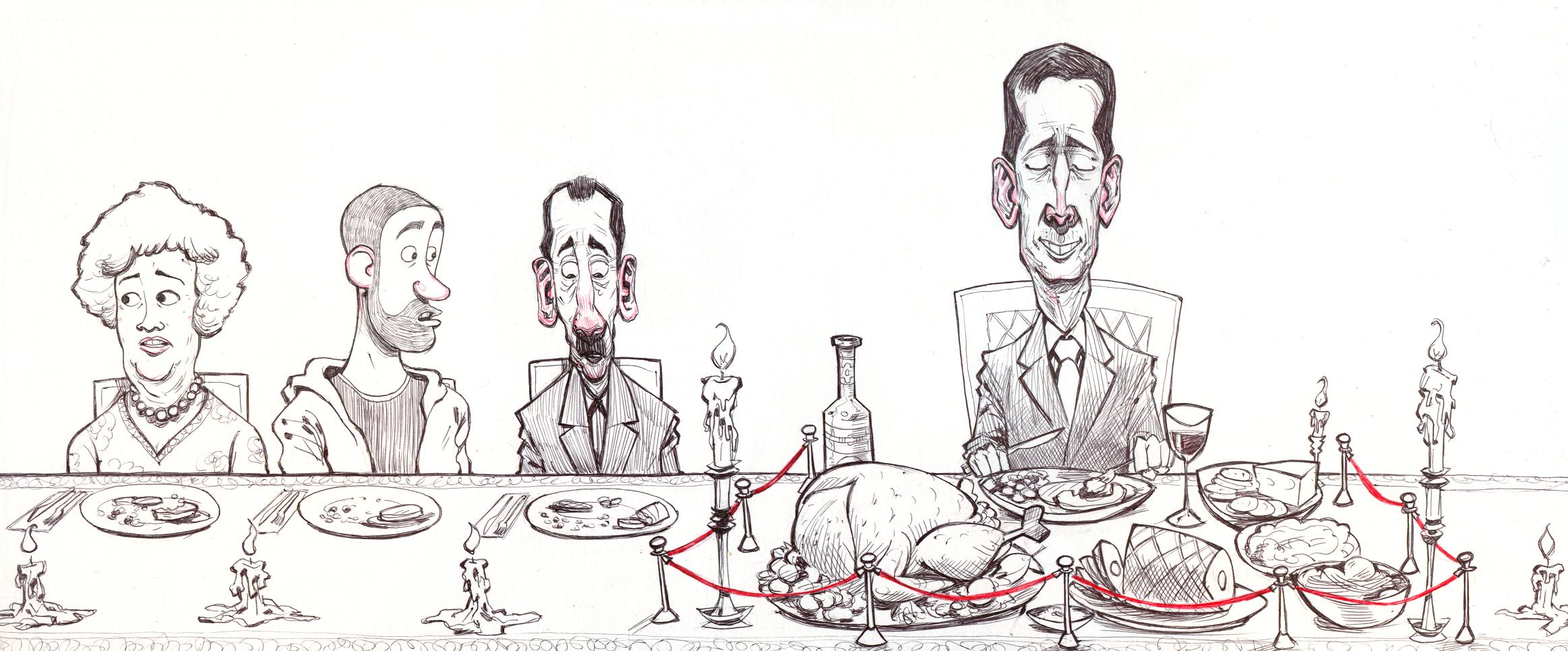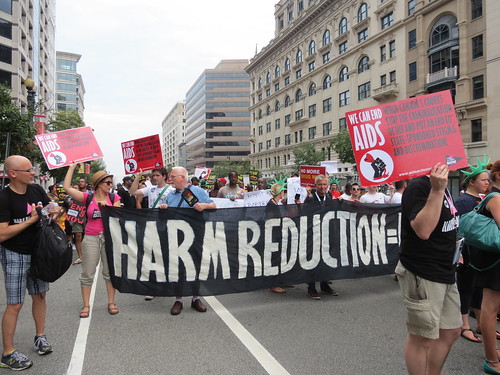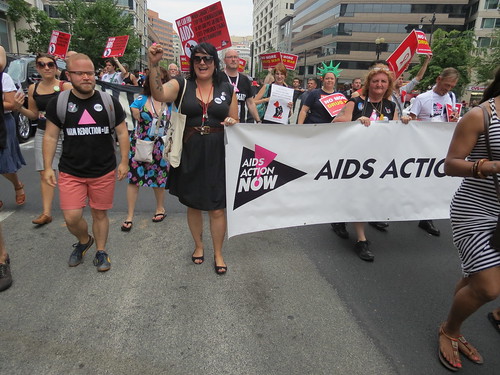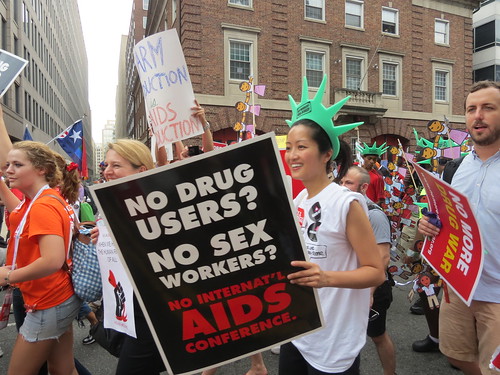Raise the rates of Ontario Disability Support!
Letter to McGuinty sent October 05 2010
Dear Premier McGuinty,
I am writing to you on behalf of AIDS ACTION NOW! to express our concerns about the government’s handling of the development of a new nutritional supplement program to replace the Special Diet Allowance.
AIDS ACTION NOW! is a Toronto based AIDS activist group founded in 1988. In the late 80s we advocated for access to experimental AIDS treatments. In the early 90s we pioneered treatment information services, and by the middle of that decade we fought for financial access. We successfully advocated for the establishment of the Trillium program that benefited all people in the province facing catastrophic drug costs. It is distressing that at the end of the first decade of the 21st century, we find ourselves writing you about meeting the basic nutritional requirements of people living with HIV and AIDS.
At our general meeting on September 21, 2010 AIDS ACTION NOW! endorsed the Five Principles for a new Nutritional Supplement Program developed by the RNAO, the ODSP Action Coalition, and the 25 in 5 Network. These principles include: a clear policy objective of additional financial support for dietary purposes; accessibility, adequacy and equity; an initial program budget that is at least equal to the current Special Diet Allowance; ensuring no one is worse off as a result of transition to the new program; and, adequate consultation with key stakeholders.
The termination of the Special Diet Allowance directly affects people living with HIV/AIDS (PLWHA). We have special nutritional needs and these needs are exacerbated by co-infections and the use of HAART medications, which can yield severe nutritional consequences (WHO, 2003). PLWHA require more food and micro-nutrient supplementation to meet their higher energy requirements and to maintain their body weight (WHO, 2003). In general, adequate nutrition has been identified as a fundamental social determinant of health (Travers, 2007; Raphael, 2004). A good diet and adequate food supply are central for promoting health and well-being, especially in cases of chronic medical conditions. Thus, it should be obvious that a poor diet for people living with HIV/AIDS can contribute to our poor health (Raphael, 2001).
Under the Special Diet Allowance, these needs were recognized. Its termination and the development of a new program, so far without consultation with HIV/AIDS community service organizations or health specialists, are producing growing anxiety in our communities.
There are several contextual issues that must be taken into consideration in the development of the new program. This list is not exhaustive.
Insufficient Funding
The crisis in the Special Diet Allowance Program was not created bythose receiving Ontario Works or ODSP benefits. The fundamental problem is that your government has neither fully rectified the cuts of the Harris years, nor kept benefits at adequate levels. Both OW and ODSP benefits now leave recipients well below the low-income cut-offs established by Statistics Canada (Raphael, 2001). The rapid growth of those applying for the Special Diet Allowance reflects the fact that no one can meet their nutritional needs at existing benefit levels. Even with access to the Special Diet Allowance, we have seen an alarming increase in food bank use by people in the HIV/AIDS communities.
Rising Poverty Rates
Research has demonstrated that there is an ever-increasing economic gap between the rich and the poor in Canada, and this is associated with the rising incidence of poverty. Poverty, in turn, has adverse effects on health and wellbeing (Raphael, 2001). For instance, poor people suffer from a wide range of diseases and illnesses and are 20%
more likely to die from virtually every disease (e.g. infectious diseases like HIV/AIDS, diabetes, and certain forms of cancers) when compared to their well-off counterparts (Raphael, 2001). People living in poverty also exhibit increased feelings of helplessness, lack of control, uncertainty, stress, material and psychosocial deprivations, all of which are strong predictors of health and wellbeing.
Health for All
The resulting strain on the health care and other systems, affects the health of all Canadians (Raphael, 2001). Eventually, even the well-off in economically unequal societies begin to show evidence of deteriorating health. The degree to which social inequality affects the health of the poor is alleviated by the presence of social programs, networks and community structures. Such elements have the greatest positive effect on the health and wellbeing of people living in poverty (Raphael, 2001).
A fiscally responsible government must recognize that cuts to programs that support basic nutrition among vulnerable populations will be more than offset by increased avoidable medical and hospitalization costs down the road. We urge you to immediately establish a forum for meaningful consultations with the range of communities who are affected by these changes, to publicly commit to the Five Principals for a new Nutritional Supplement Program, and to raise benefit rates to levels adequate to ensuring proper nutrition among vulnerable populations.
Sincerely
Tim McCaskell
For AIDS ACTION NOW!
c.c. Deb Matthews, Ministry of Health and Long-Term Care
References:
Raphael, Dennis. (2001). From Increasing Poverty to Societal Disintegration: How Economic Inequality Affects the Health of Individuals and Communities, pp. 223 - 246.
Raphael, Dennis. (2004). Introduction to Social Determinants of Health. Social Determinants of Health: Canadian Perspectives (p. 1 -19). Scholars Press.
Travers, Robb. (2007). The Sociology of HIV/AIDS. University of Toronto.
World Health Organization. (2003). Nutrient requirements for people living with HIV/AIDS: Report of a technical consultation. Geneva.






















